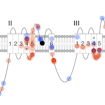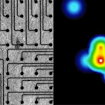
On July 29, 2020, SFARI convened an online workshop to explore environmental (maternal and fetal) risk factors for autism spectrum disorder in the context of COVID-19 infection.

On July 29, 2020, SFARI convened an online workshop to explore environmental (maternal and fetal) risk factors for autism spectrum disorder in the context of COVID-19 infection.

Due to the COVID-19 pandemic, SFARI replaced the in-person spring 2020 science meeting that was scheduled April 5–7 with a series of seven weekly webinars held between April 17 and May 29.

On February 6–7, 2020, SFARI convened a two-day workshop to explore the possibility of gene therapies for autism spectrum disorder.

On June 22, 2019, families of people with DYRK1A syndrome gathered in Seattle to support one another and meet with researchers. A rare condition resulting from mutations to the kinase-encoding gene DYRK1A, the syndrome is associated with anomalous brain development and a range of symptoms, including microcephaly, seizures, speech delay and autism.

On August 2–3, 2019, people from around the world met in Seattle, Washington, to review recent findings about mutations to the sodium channel encoded by SCN2A. Organized by the FamilieSCN2A Foundation, the meeting hosted scientists as well as families of people affected by SCN2A mutations.

On May 21, 2019, the recipients of the SFARI Bridge to Independence Award gathered at the Simons Foundation to discuss their scientific findings and plans in autism research.

SFARI held its 15th science meeting April 7–9, 2019. Over 100 SFARI investigators, collaborators and foundation staff convened to discuss recent findings on the genetics, molecular- and system-level mechanisms and clinical aspects of autism spectrum disorder. In addition to keynote and session presentations, the meeting hosted a panel on animal behavior and demonstrations of online tools for visualizing and analyzing data sets relevant for autism research.

On April 18, 2019, SFARI brought together autism specialists and child development experts to explore the short-lived yet critical period of infancy. Understanding how cognition, motor skills and language unfold during the earliest developmental stages of life may help detect autism earlier, parse subtypes and inform mechanistic studies in animal models.